Burl Cain, 69, warden of Louisiana State Penitentiary for about 17 years, arranges for us to view the 18,000-acre prison, the largest maximum security penitentiary in America, from its Mississippi River edge.
That’s the way Samuel Clemens (Mark Twain) saw the same land—once a slave-breeding plantation (named Angola, after the African nation thought to have larger and stronger men, Cain says), then a cotton and indigo plantation and finally, a prison after the Civil War.
The slightly inclined beach, unlike the tall bluffs elsewhere on the Mississippi, allowed steamboat roustabouts during Twain’s time to harvest wood that would serve as riverboat fuel. But we motor up and down the Mississippi aboard a gas-fueled, 28-ft. prison pontoon boat while its captain, Randy Robinson, 45, explains why few inmates choose to try escaping on the 14-mile-long river sides of the penitentiary grounds.
Robinson describes a water temperature as low as 40 degrees, the river’s treacherous turbulence and, in places, a rapid current that is “spooky, spooky.” During heavy storms, the river also represents a flood threat; twice in recent years the penitentiary temporarily has had to evacuate 2,000 inmates to others prisons.
Later, we drive by a line of 150 inmates marching into a prison field to harvest vegetables as a rifle-toting guard on horseback watches. Nicknamed “The Farm,” the 5,300-inmate penitentiary produces enough vegetables to feed over 11,000 inmates housed in five state prisons year-round; each inmate is fed three meals daily for a cost of only $1.50, says Gary Young, the prison official who accompanies us.
After beginning a series of six inmate interviews, we break for a five-course, prisoner-produced lunch at a dining center for penitentiary guests called The Ranch. We are gorging on tasty, tiny chocolate chip cookies and lemon meringue pie when we are summoned to the office of Warden Cain, a short, affable, Santa-Claus-shaped true believer in religion’s ability to achieve inmates’ moral rehabilitation.
During our meeting Cain displays his several sides—flatterer, nontraditional penologist, propagandist and teacher on parenting. Cain claims he has been a Twainiac since childhood. He says his mother, a fourth-grade teacher, encouraged him to read Twain’s writings. Cain played fish with a deck of cards that featured Louisa May Alcott, Twain and other American authors. Cain says, “I always wanted to get Mark Twain.”
Interspersing his talk with “that’s just cool” and “it’s pretty cool,” Cain outlines his philosophy for a good prison: “good food, good medicine, good play and good praying….We do all those four components and we just rock and roll.” In a prison world of few Muslims and Buddhists and a lot of what Cain calls “Bapticostals,” Cain promotes praying, avoiding profanity and studying the Bible.
The prison helps trains inmates to become preachers to spread the gospel at other Louisiana prisons, as well as Angola. The penitentiary’s 83 death row inmates and 4,000 lifers are encouraged “to find meaning to their existence in prison even in the direst circumstances,” writes Dennis Shere, in Cain’s authorized biography. “For the warden, that existence is found in believing in Jesus Christ as Savior.” Cain’s biography makes clear that it was produced by a publisher of books “written from a biblical perspective.”
At least one former prisoner views Cain’s systems of rewards and privileges for moral rehabilitation with skepticism. Wilbert Rideau, the prize-winning former editor of the prison’s newsmagazine and probably the penitentiary’s most famous ex-con, calls Cain a bully. Rideau writes in his memoir, In the Place of Justice, that Cain “enjoyed being a dictator, and regarded himself as a benevolent one.”
Months before our scheduled visit to the penitentiary I had written to Cathy Fontenot, the assistant warden in charge of public relations, to arrange for interviews with what the prison has taken to calling “offenders” (a label disliked, a prison official acknowledged, by inmates). Fontenot had refused to confirm my prison-visit date and had denied my request to interview a death-row prisoner.
Since previously I had interviewed several death-row inmates at the penitentiary, I contacted the Louisiana office of the American Civil Liberties Union for its help. The ACLU, in turn, talked with Warden Cain, who called me. “I’m probably the only warden in the country,” he said, “who gets along with the ACLU.”
Cain explained the difficulty of arranging an interview with death-row inmates. Families of victims did not want the inmates to receive publicity. The inmates’ lawyers worried about media attention damaging their clients’ appeal for release or a reduced sentence. But Cain said he would try to arrange a death-row interview.
In our presence that afternoon, he drafts a letter that he says he hopes will persuade Manuel Ortiz to allow us to video interview him on death row, despite his lawyers’ concerns. “This story will be good for Angola and should not cause you any grief,” Cain writes. “If you don’t feel comfortable with the questions they ask, then don’t answer, just move on to the next one.” Cain’s letter does not work. We say hello to Ortiz during our visit to death row but do not video interview him.
But we do video interview Cain. Earlier both prisoners and ex-staff had groused to us about being required to classify themselves as black or white on penitentiary forms, even though they identified as Asian American, Native American or something else. So I ask Can about the prison’s classification system.
Cain says that, in melting-pot America, the prison really does not care about race or ethnicity: “We just all Americans….We Americans, and we don’t refer to anyone as African Americans or English Americans or Vietnamese. You can tell he is Vietnamese, you know, because of the way he looks. We really don’t get into all that. We just don’t care. We just Americans.”
Cain ends the interview with his approach to raising children, captured on Dan Tham’s video.
Loren Ghiglione

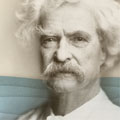

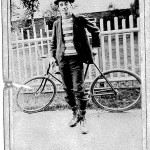


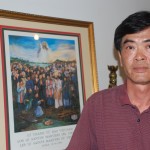
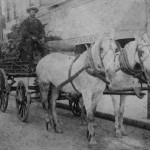

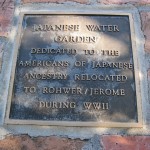




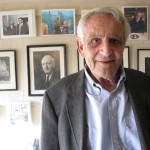


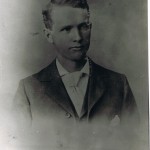





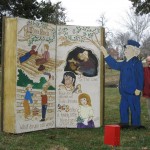

i WOULD LIKE THE EMAIL ADDRESS TO WARDEN BURL CAIN; NEED TO DISCUSS SOME THINGS WITH HIM
Dear Warden Cain, I have been watching your show on Animal Planet since it started and I must say what u and your staff r doing is so unique and gives inmates purpose. I am so very impressed with your show and I hope there will be many more seasons of your show. I live in the suburbs outside of Detroit. I have never been in trouble with the law nor will I ever be! I honestly think u should speak to wardens all over the country and teach them what u r doing maybe it would cut down all the violence in other prisons. U seem to be a very fair, caring, kind and thoughtful person and one thing I think is u should be praised for all of your good work. I just wanted to send u a quick note telling u that I love the show and to say what wonderful person u r and your staff!! Please keep up the great work and know that u have an unique way of dealing with prisoners, I really do think u should get other correctional facilities involved I think u have proven it cuts down on violence in prison. All my best to u and your staff!
im suppose to visit my dad for the first time sept 14th and because of issues at my home i wont be able to visit and i would like somebody to please keep an eye on him with his health the way it is. i love him and im sorry